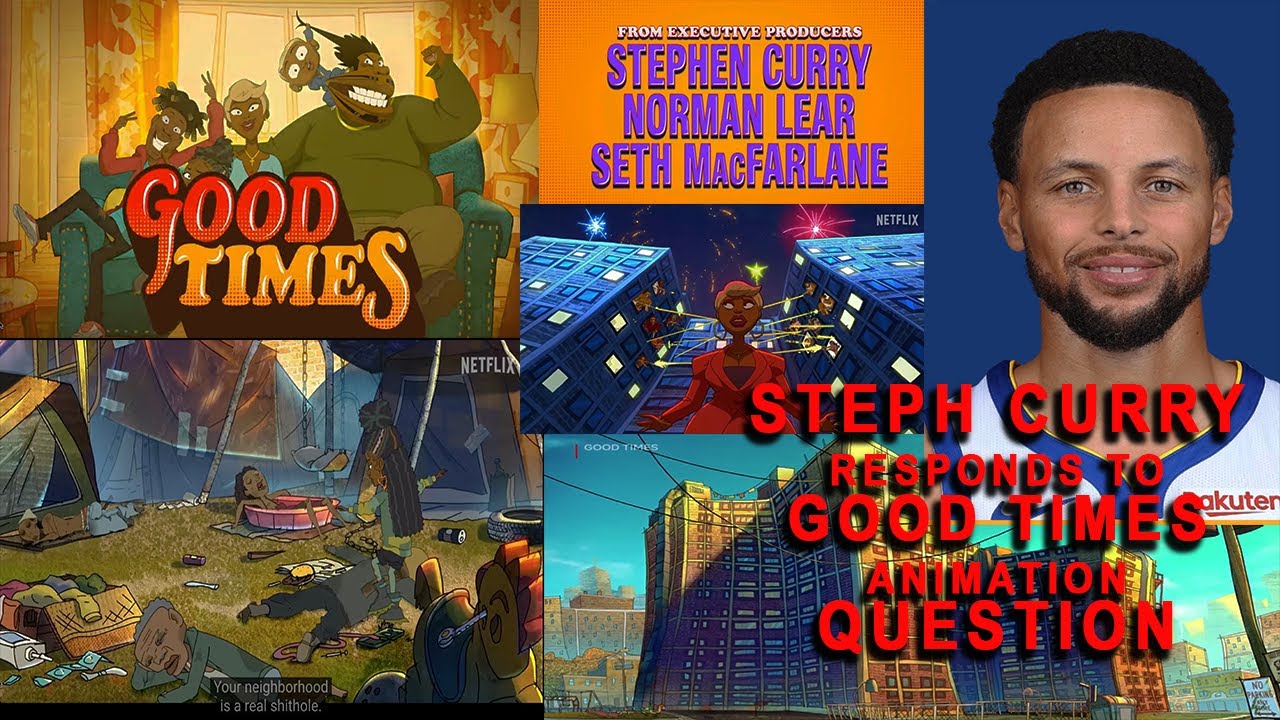(ThyBlackMan.com) Anyone who isn’t living under a rock knows that this past week, coverage of the George Zimmerman trial flooded almost every news outlet. Almost every outlet had analysts and commentators who freely offered their opinions on the case; don’t worry, you won’t be reading another one today—at least not on the guilty-versus-innocent debate.
I want to talk about a common phrase/idea I keep hearing black people say, “Nobody cares about the everyday black-on-black crime though.”
It fluctuates from person-to-person as well. I’ve heard everything from “but there are plenty of Trayvon Martins who have been killed and no one has said anything” to “black people only want to get upset when a non-black person does the killing.”
Get ready for a bit of opinion now (I warned you):
Using the inaccurate and generalizing theory that black people only get up in arms when a crime is committed to one of our own by a non-black person is ludicrous. It’s completely untrue. Unless you live in every single neighborhood (or have family and friends in EVERY SINGLE neighborhood) in the nation and can physically, first-hand account for what blacks do when one of their own is murdered (no matter the aggressor)—what actions they take ASIDE from what a newspaper or media outlet may or may not choose to highlight—you cannot make the claim that blacks only get riled up when it’s non-black on black crime.
Do not let a few cases that have garnered national attention fool you; the media will sensationalize and/or make anything it wants to relevant. So, just because you don’t read about blacks standing up or speaking out, doesn’t mean it’s not happening. And just because you don’t see protests or blacks advocating for change in their neighborhoods on the major news outlets, doesn’t mean they aren’t.
Yes, there are plenty of Trayvon Martins that didn’t make worldwide headlines. There were also plenty of men and women who refused to give up their seats on buses way before Rosa Parks came along, but she was the one that catapulted the Montgomery Bus Boycott, which ultimately led to bus desegregation. Do you think Medgar Evers was the first black man to be assassinated? Or Emmet Till was the first black teen to be brutally murdered? No. Many people who made a difference in our nation’s history (especially pertaining to blacks) were not the first to either do what they did or the first to have that particular incident happen to them, but they were the ones whose stories garnered enough attention to actually make a difference.
And no matter how people choose to view it, these people were necessary. If some attention wasn’t finally brought to those refusing to give up their seats to whites and taking a stand against segregation, we may still have been on the back of the bus. There were and are plenty of black boys that could replace Trayvon Martin in the news, but his story was the one to garner the mass amount of attention. Now, like Rosa, Medgar, Emmett and others, a major issue in society is finally being brought to our nation’s attention. It doesn’t matter WHO the change occurred through, it just matters that it does occur.
Now that Trayvon Martin’s case has gained national attention and stirred up the necessary discussions of race, prejudice, and racial profiling in the country, hopefully the outcome will bring more awareness to the many other victims like him so we can work to prevent this from reoccurring.
Another quick thing I want to highlight about the importance of this case is the one thing many try to say it’s not about—race. The main reason this case garnered so much attention was because of
1) the stand your ground law and
2) the way the Sanford Police Dept. “handled” the shooting. The police chief got on national television and said they wouldn’t be charging George Zimmerman because, as in the law, he shot Martin in self-defense and did not commit a crime. The police department failed to conduct an investigation; the officers said they had no reason to believe otherwise about Zimmerman’s story.
Having a law that allows anyone to kill another person in self-defense causes problems within itself (and is more of a political issue), but the point is how the law was carried out.
The Tampa Bay Times conducted a study in June 2012 on the effects of Florida’s “Stand your Ground Law,” and you know what it found? The defendants claiming “stand your ground” are more likely to prevail if the victim is black. Seventy-three percent (73%) of the people who killed a black person didn’t face any penalties compared to 59 percent of the people who killed a white person.
In 159 cases where the law was used as reasoning, the victim was not armed compared to 62 cases where the victim was armed. The victim was not committing a crime in 179 cases compared to 49 cases where he or she was. Also, in 128 cases, the defendant could have retreated to avoid the conflict and killing the person, as opposed to 34 cases where he or she couldn’t.
The Sanford Police Dept. failed to do its job objectively and conduct a full investigation, because if you believe if the story was reversed—George Zimmerman was a grown black man who had shot and killed a white teen—that department would have without-a-doubt believed his self defense claim, no questions asked and he—the Black shooter—would be home free just hours later after killing a white teen…you’re fooling yourself.
I’m not making claims on Zimmerman’s intentions or biases, but most assuredly believe that race was a factor in the way the police department failed to do its job.
My ‘opinion segment’ is up; feel free to have your own in the comments section.
Sources;
Staff Writer; Shala Marks
Facebook; https://www.facebook.com/shala.marks
Service is her passion, writing is her platform, women and the Black Community are her avenues. Shala Marks is a writer, editor and soon-to-be author. Through her work, Marks aspires to demonstrate “The Craft of Writing, and the Art of Efficacy.” She has a B.A. in journalism from ArizonaStateUniversity. Connect with her at http://www.sisterscanwespeak.tumblr.com.




















First let me state that I am an elderly white man. I feel the lose of anyone’s life is tragic. The circumstances that led up to this event began way before that fatal night. Martin being suspended from school and visiting his father. Zimmerman feeling as though he had to protect his neighborhood. Who is doing all the crimes by the way? To many reasons leading to this tragic event. No one was innocent and one man died. This story will only be repeated with much more frequency until we come to grips with what makes the one race scared or pissed at the other. I for one think it is one of disrespect for human kind as a whole. Don’t take what doesn’t belong to you is one example of major disrespect to all. Why can’t we just stop committing crimes? Why? human nature is to destroy and not build. It is too hard to always do the right thing. Rape, murder, theft, drugs. Wake up human race. It is not a race issue. It is a human disrespect issue in a massive way. Work hard to do the right thing. It is always worth it.
I totally ahree flo I said the same thing last night….if he would have given his phone to zimmerman so he could call his dad and verify who he was, he would have been ok. Most people will say “why should he have had to do all that?” Would Trayvon been better off being right or wise? If I’, walking down a street, at night, and I see a black teen with a hoody on, I’m nervous myself. If you;re a young man, especially back, and a grown man asks you a question, your best response is “yes sir no sir.” Instead of “you can’t tell me what to do.” When I talk to the police I respect them. I say “yes sir no sir.” It doesn’t compromise my dignity to give them respect.
I meant to say what it wasn’t it wasn’t racist. And why is it racist for a white person to use unkind language towards another race but not for a black person to call a white person unkind things.
Travyon should have and could have called his father if he feared for his life not jump GZ. Both were guilty of this. And a person has a right to use whatever force to defend themselves if ever attacked and fears for their lives no matter what color they are. I have had someone I knew attack me and I thought I was going to die and if I had a gun he may not be here right now. This was a tragedy all away around. Both parties handled this wrong and it ended up badly and a young man lost his life, but lets not make it out to be what it was racist.
Can anyone disagree, if I said, George Zimmerman was the only person who could have prevented the death of Trayvon Martin on that night. Speaking Practically, GZ had multiple opportunities to prevent the death of Trayvon that night. Lets say that he had followed the 911 operators directions, and stayed in his truck, he would not have killed Trayvon that night. If GZ had not carried carried that weapon, he could not have shot and killed Trayvon that night. If George had properly identified himself as armed neighbor watch (assuming that is true), maybe Trayvon would have lived beyond that night. If George Zimmerman’s culture had not encouraged his entitlement he would not have felt comfortable carrying that weapon to confront another person. George Zimmerman hunted, confronted and provoked that alleged confrontation.
To NonOfYourBusiness:
Thanks for sharing your views, but I’d like to clarify one thing. I wrote, ““Having a law that allows anyone to kill another person in self-defense causes problems within itself (and is more of a political issue), but the point is how the law was carried out.” Perhaps I should’ve written “can cause” as opposed to “causes” because I was in no way saying the Stand Your Ground Law is completely wrong or should be abolished. What I meant was having a law like this where it’s based on something that can be subjective can cause problems.
A perfect example of this is what Alexis Francisco Carter, George Zimmerman’s former instructor, said today while testifying about what he taught about the law:
He explained that a person can make a self-defense argument if the person has a “reasonable apprehension” of death or great bodily harm.
“It’s imminent fear. The fact alone that there isn’t an injury doesn’t necessarily mean that the person didn’t have a reasonable apprehension or fear,” Carter said. “The fact that there are injuries might support there was reasonable apprehension and fear.”
http://www.huffingtonpost.com/2013/07/03/george-zimmerman-gun-trayvon-martin-dna_n_3543097.html?utm_hp_ref=trayvon-martin
This “reasonable apprehension” is subjective, no matter if it’s clearly defined in the law or not ( I don’t have this information). What’s a reasonable apprehension of fear to one person may differ from what this means to another person. This can cause problems and misuse of the law if people go around killing or harming others in what they viewed as a reason for “self defense.”
Like the case this post derived from, if GZ really did confront Martin first, some sort of fight or scuffle ensued, GZ obviously felt like he was on the losing end and says he feared for his life so he used deadly force to defend himself. To him this may have been a reasonable apprehension of fear, but to to others, putting yourself in a scenario where you created the supposed threat and fear may not be.
I appreciate you reading and commenting.
“Having a law that allows anyone to kill another person in self-defense causes problems within itself (and is more of a political issue), but the point is how the law was carried out.”
Wow, so if a Klanner (KKK) had a knife to a Black woman’s throat and was about to rape her to death, she shouldn’t have the right to use deadly force to defend herself? How about if it was he daughter?
Just wow.
Well after listening to Rachel Jeantel on the witness stand, I now suspect that having had such a long discussion with Rachel, Treyvon took the gun away from GZ and shot himself
The Tampa Bay Times conducted a study in June 2012 on the effects of Florida’s “Stand your Ground Law,” and you know what it found? The defendants claiming “stand your ground” are more likely to prevail if the victim is black. Seventy-three percent (73%) of the people who killed a black person didn’t face any penalties compared to 59 percent of the people who killed a white person.
The race breakdown isn’t particularly informative. What would be useful to know is how many of the cases involved dead perps with criminal records. And referring to the dead in Stand Your Ground cases as victims is an inversion of the terminology usually used. The victims are usually the Stand Your Ground defendants who are holding off perps trying to rob or inflict physical harm on them.
In 159 cases where the law was used as reasoning, the victim was not armed compared to 62 cases where the victim was armed. The victim was not committing a crime in 179 cases compared to 49 cases where he or she was. Also, in 128 cases, the defendant could have retreated to avoid the conflict and killing the person, as opposed to 34 cases where he or she couldn’t.
Perps don’t need to be armed to rob or inflict physical harm. It would be nice to know the age and weight differences between the victims and the dead perps and, of course, whether the perps had previous criminal records. The whole point of Stand Your Ground is that you don’t have to let perps steal or destroy your stuff or beat you senseless, so the duty to retreat is irrelevant.
George Zimmerman’s Black Ancestry is Revealed
http://www.freerepublic.com/focus/f-news/2876811/posts
George Zimmerman: the black, Hispanic, Peruvian, kind-hearted non-white, not-racist poster boy
http://www.freerepublic.com/focus/f-news/2876692/posts
George Zimmerman Has ‘Black Roots’
http://www.freerepublic.com/focus/f-bloggers/2876518/posts
AS a person who has studied mass media for sometime I am suspicious of the prominence this story is getting.I know the mass media only tell us something for a reason;which mean’s they could just as easily not tell this story.THERE have been many horror story’s involving black’s murdered in cold blood since TRAYVON’S death;and they were even more sensational.THE black couple in CLEVELAND that was chased by the police and their car was riddled with over 100 round’s and they were the wrong people.OR the brother who was literally ran over and killed instantly by a police car while fleeing a traffic stop;and by the way the whole thing was caught by the dashcam.THERE has also been some website’s posting article’s claiming that black’s are planning to attack white’s if ZIMMERMAN is aquitted.THIS story along with the PAULA DEEN story seem to me are being used to create some division and conflict.OUR government is not beyond inciting race riot’s;and at this point they would love to have a great diversion from the scandal’s they are suffering from.I hope I am wrong and we get through this peacefully ;even if ZIMMERMAN is aquitted.